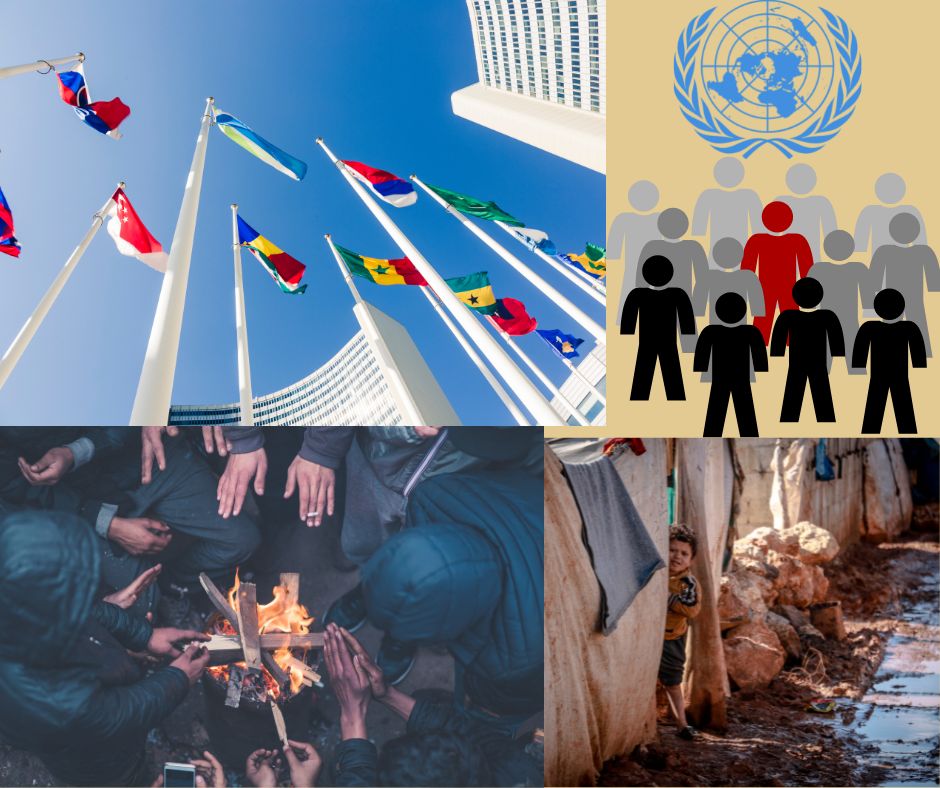
Source: AUN News
In light of the catastrophic effects of the COVID-19 epidemic, systematic racism, racialized violence committed by law enforcement personnel, and the climate crisis, among other problems, today we commemorate the accomplishments and resiliency of people of African heritage.
The International Day for People of African Descent provides an opportunity to examine the realities that African Americans and other people of African descent face on a daily basis, to advance and defend their rights, and to draw attention to the difficulties and obstacles that many still encounter in exercising their rights. These evaluations draw attention to the ongoing precariousness and racially mediated experiences of African descent among migrants, refugees, and asylum seekers.
As UN experts, we have drawn attention to the plight of migrant workers of African descent in the Middle East and Gulf states, many of whom are victims of trafficking for the purpose of labour exploitation. We have also highlighted the situations of migrants from Haiti, refugees, and asylum seekers, as well as people of African descent seeking refuge from Ukraine. Most recently, we demanded justice for the Melilla catastrophe, in which at least 23 Africans died while attempting to cross the Spain-Morocco border in Melilla.The heartbreaking images of Africans being murdered on the outside of the European Union stood in stark contrast to the assistance that was rightfully given to Ukrainians, and they exposed the pervasive racial prejudice that underlies many of today’s border control methods and laws. It was a tragic reminder that as part of comprehensive efforts to address racial discrimination, States must examine their laws and practises, focus on safeguards and obligations on the use of force and non-refoulement, and uphold their responsibility to treat migrants, refugees, and asylum seekers with dignity.
African-descent migrants, refugees, and asylum seekers face grave violations like inhumane detention, human trafficking, exploitation, and forced transfers as they attempt to make even more dangerous journeys to other nations in search of better opportunities. These violations are in addition to the risk of being disproportionately victimised by conflict. For many women and girls of African origin, the added dimension of gender-based violence, sexual exploitation, and abuse at the hands of traffickers is a lived reality.
International migration is ongoing, and many of the driving forces behind the emigration and displacement of people of African origin, such as conflict and climate change, have their roots deeply ingrained in colonial activities and their dreadful aftereffects. A strong legal basis for the protection of migrants, including refugees and asylum seekers, is provided by international human rights law. Therefore, it is the responsibility of states to not only protect the lives of people of African descent who are on the move, but also to ensure that their human rights and dignity are preserved, with special protection measures for those who are most at risk, such as women, children, the elderly, people with disabilities, and people who are coping with medical conditions.
We continue to be particularly alarmed by reports of racial profiling, excessive use of force, and other transgressions of international human rights law by law enforcement personnel. Many of these incidents go unreported due to fear of retaliation, bad past experiences with law enforcement, a lack of sensitivity or training among law enforcement personnel, the conviction that the complaint will be unnecessary, and improper data collection.
While we applaud the UN Members States for taking some precautions, more has to be done. We urge States to consider the various, connected, and compounding forms of discrimination that people of African descent experience when dealing with law enforcement. These forms of discrimination can be attributed to nationality, immigration status, gender, age, religion, colour, disability, socioeconomic status, and other factors. States should implement the accountability, redress, and observable changes in the lived conditions of people of African heritage that are required by international human rights law. States should treat individuals of African heritage who are travelling with the utmost care and attention and ensure that they have access to justice, safety, and development.
Analysis by: Advocacy Unified Network
